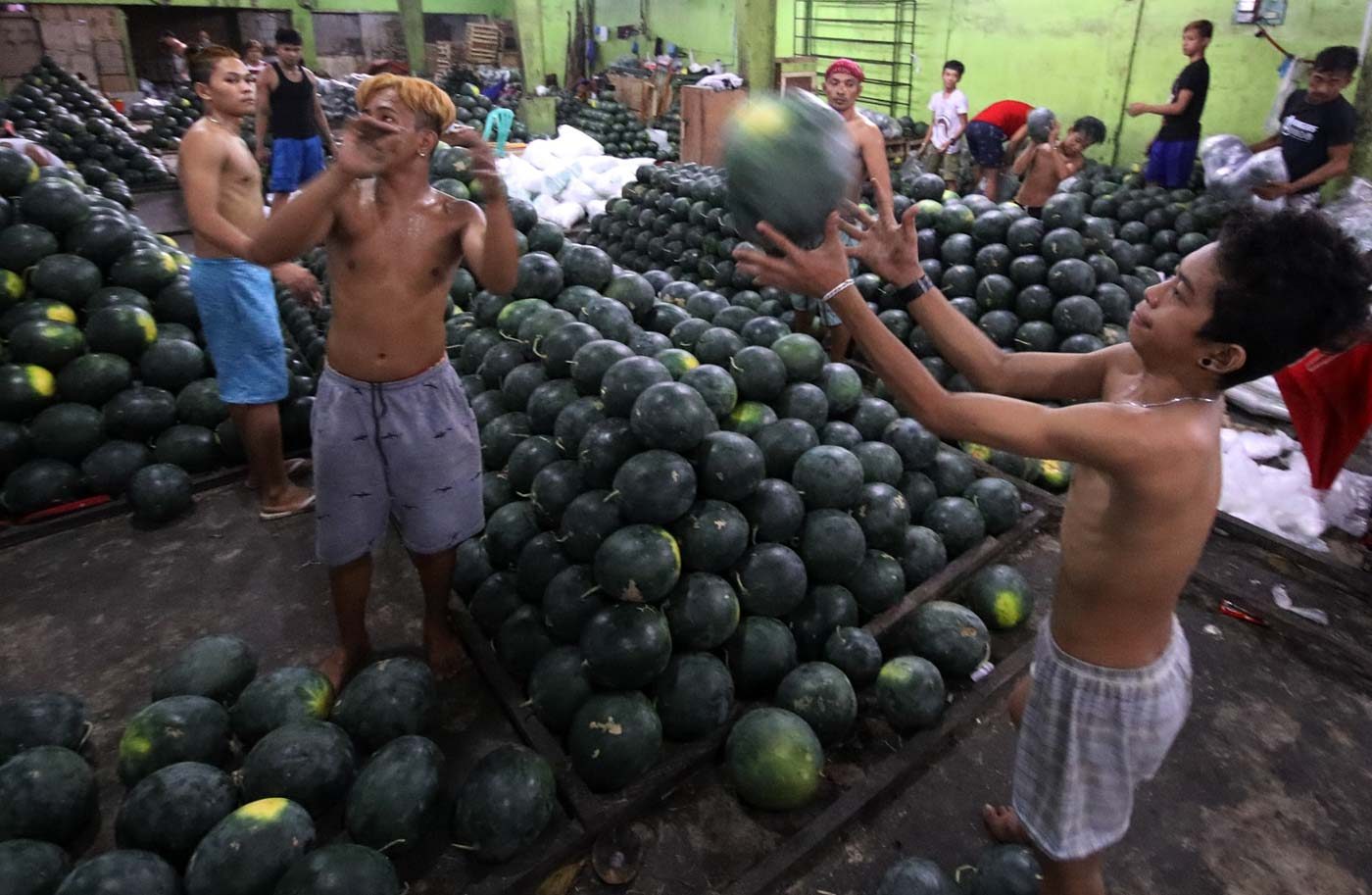SUMMARY
This is AI generated summarization, which may have errors. For context, always refer to the full article.

MANILA, Philippines – China, the world’s second biggest economy, may import more fruits and agricultural products from the Philippines in the coming years given continued warm ties between the two countries, Philippine Trade Secretary Ramon Lopez said on Friday, August 30.
Lopez said this was Chinese President Xi Jinping’s commitment during his meeting with Philippine President Rodrigo Duterte and his Cabinet members at the Diaoyutai State Guesthouse in Beijing on Thursday, August 29.
The words were music to the trade chief’s ears, given the Philippine government’s longstanding goal to balance the trade deficit between the two countries.
“President Xi reiterated China’s policy to help balance trade with the Philippines by buying more goods, especially agriculture and agri-based products, and industrial goods,” Lopez said in a statement.
Xi was also quoted by Chinese state-run news agency Xinhua as saying, “China is willing to import more high-quality fruits and agricultural products from the Philippines, and will send experts to the Philippines to teach agricultural and fishery technology.”
Lopez said China’s Commerce and Finance Minister Zhong Shan told him of China’s desire to import more goods from the Philippines.
Openness from China to buy more Philippine products bodes well for Philippine agribusinesses and farmers, a potential win for Duterte who has promised economic gains from China.
The President has cultivated warmer ties with the Asian power, which his critics said have come at the cost of Philippine rights in the resource-rich West Philippine Sea. China, despite Duterte’s overtures, continues its fortification of artificial islands in Philippine waters, harassment of fishermen and Filipino soldiers, and intrusions in the area.
A wide trade gap exists between the two countries. A trade gap occurs when a country imports more goods than it exports.
China was the Philippines’ biggest supplier of imported goods with 22.8% share to total imports, as of June 2019, according to the Philippine Statistics Authority.
China, meanwhile, was only the 3rd largest importer of Philippine products, at $824.85 million as of June 2019.
Fresh bananas are the Philippines’ second major export product, accounting for 24.4%. Its top export product are cathodes and section of cathodes and refined copper, comprising 41.7% of the total.
Back in 2016, China lifted its ban on Philippine bananas which it had introduced during the term of Duterte’s predecessor, Benigno Aquino III. It was during Aquino’s presidency when the Philipines took China to court for its reclamation activities and harassment of Filipino fishermen. The Philippines won that case. – Rappler.com
Add a comment
How does this make you feel?
There are no comments yet. Add your comment to start the conversation.